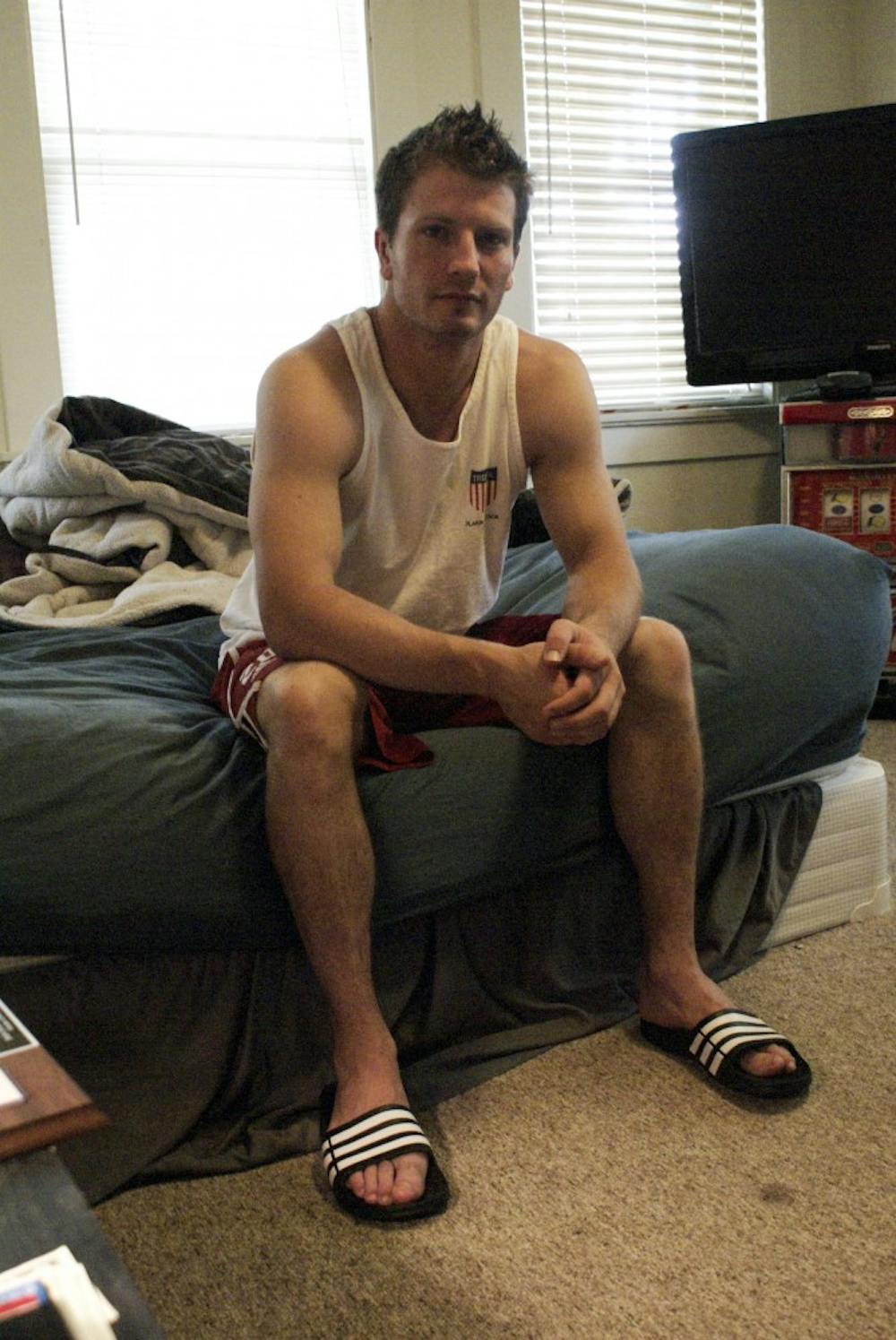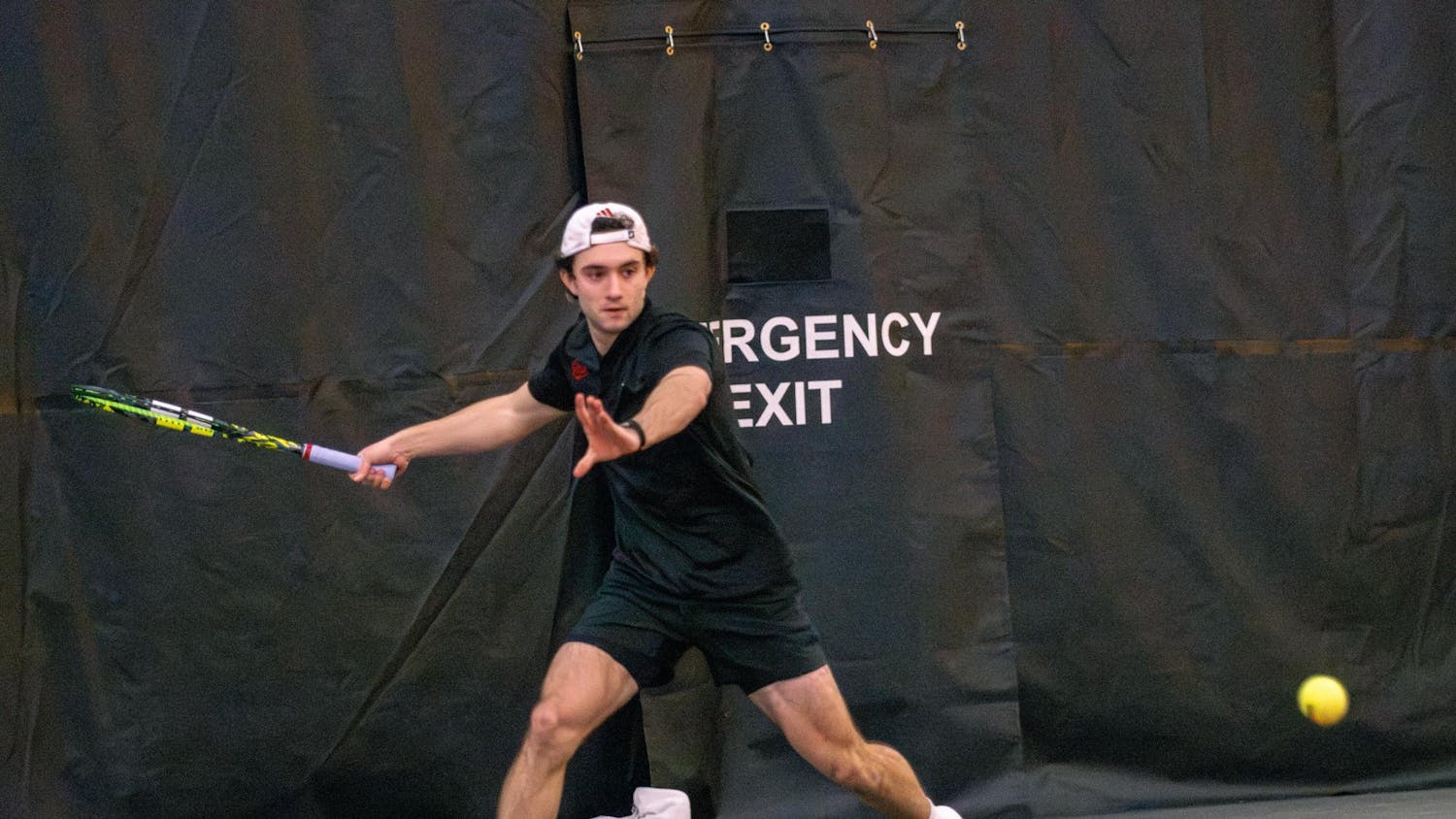Casey Smith was lying in his bed, trying to ignore the excruciating pain. He just wanted to go to sleep.
He had a pinched nerve in his right leg. His ankles, feet and toes were swollen beyond belief, he said. He tried and tried, but sleep wouldn’t come.
After taking batting practice earlier that day, as he had hundreds of times before in his career, he was sore. Being sore was normal for Smith.
But he had been diagnosed with reactive arthritis a few years before, and the condition can cause severe pain everywhere from the eye to the toe.
Smith had always fought through the pain in his career, but heading into his senior season, the pain was too much.
Smith, who had helped IU reach its first ever College World Series the year before, hitting .309 as an outfielder, couldn’t even get up to turn off the light because of the pain in his body.
He tried throwing a pillow at the light switch.
No luck.
He threw another one.
Still nothing.
His roommate and teammate Trace Knoblauch didn’t learn about the incident until the next day. Knoblauch told Smith he should have called him, and he would have come in and turned the light off for him.
“He just kinda had a defeated look about him,” Knoblauch said. “Like he was too embarrassed. He didn’t wanna resort to that, you know?”
Smith isn’t the type to ask for help. His mother, Jaime Smith, said she has always admired her son’s toughness.
There was the time he got cleated in the face. With blood pouring down, he stayed in the game.
There was the time in little league he was pitching and a line drive hit him in the head. Still, he kept playing.
“My kid, he is tough as all get out,” Jaime said. “I think he’s tougher than he even knows with his pain tolerance.”
Unfortunately for Smith, who had dealt with injuries his whole life because of the reactive arthritis, paralyzing pain was becoming more and more common.
Something was seriously wrong. The condition he had spent his whole life trying to manage was getting worse.
“When I get those episodes,” Smith said, trailing off. “They suck, man. I can’t even crawl.”
***
The 2013 season was a dream year not only for Smith, but also for IU.
To go along with his .309 batting average, Smith finished with five home runs and 34 RBI, his best collegiate baseball season.
The Hoosiers, who had never been ranked in the school’s history, became one of the country’s best teams. They advanced to the CWS, the first time a Big Ten team had reached Omaha, Neb., since the 1984 Michigan team.
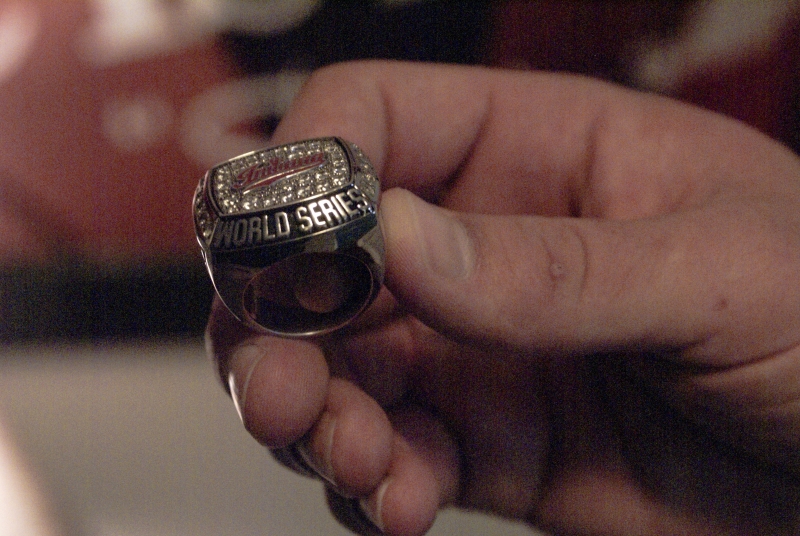
The next year, Casey came into his senior season ranked one of the top-100 senior prospects by Baseball America.
But as 2014 approached, the pain he had dealt with his whole life became unbearable.
On mornings where he had trouble walking, Knoblauch would offer him a piggy-back ride to his car.
“After seeing what he went through, I wouldn’t wish it upon anyone,” Knoblauch said.
Smith didn’t play as much as he had in 2013, but the times he did play in 2014, he was in pain.
Sometimes he was on crutches in the dugout. He only played in 21 games, and hit just .179.
“I just feel old,” Smith said. “This year I just felt like an old man. Just not the same speed and step.”
He wasn’t the same physically, that was tough enough to deal with. But the mental side of things was even tougher for Smith, he said.
He flip-flopped on whether he wanted to come back or not and endure the pain.
He tweeted that his college career was finished April 17.
“I am sad to say my days as an athlete have come to an end,” he tweeted. “It’s not how I expected it, but it’s been a blessing up to this point.”
But 26 days later, on May 12, Smith announced he had changed his mind.
He wanted to come back.
The doctors had given him some new medicine and he was feeling better, but still not 100 percent.
With a new pep in his step, Smith met with the media May 12 and said he would return to the team as a right-handed pinch hitter.
There was still pain there, but there was a chance to play. Ultimately, it was up to the coaches whether he would see playing time or not.
But what would Smith have to do to get back on the field?
“If I can swing well enough in practice and prove that I deserve a roster spot,” Smith answered at the time.
He would only be a situational player, but still, he would put on the uniform and have a chance to play for the Hoosiers.
As it turned out, Smith would get one more shot. IU played Minnesota May 15.
And in the ninth inning, the Hoosiers needed a right-handed pinch hitter.
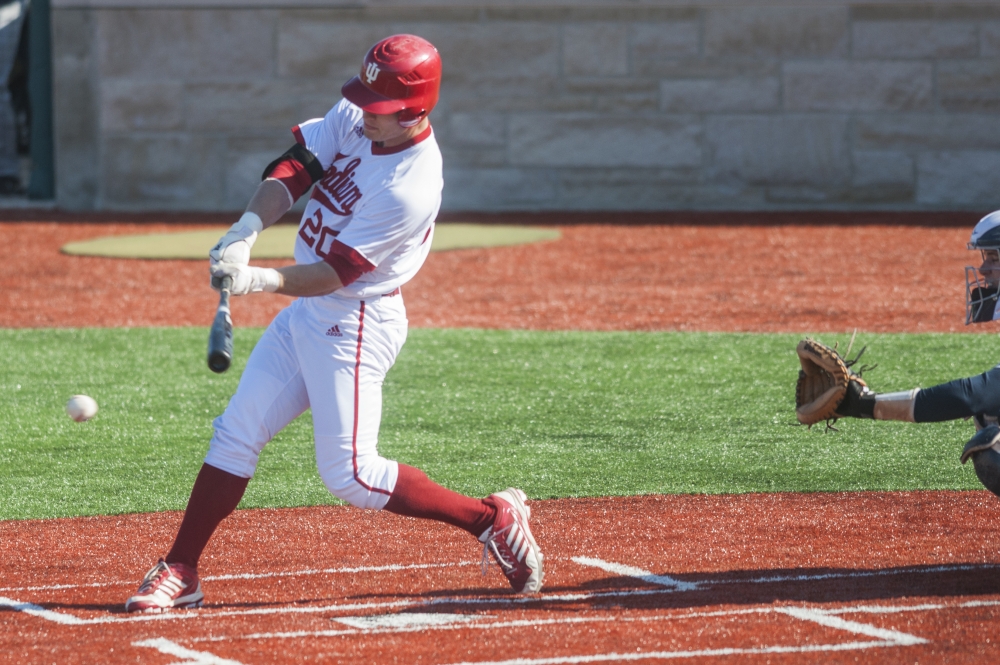
***
It was a situation worthy of a baseball poem: bottom of the ninth, two outs, IU was down by one run to Minnesota. Smith was the last chance for IU to pull out the win.
Smith’s appearance at the plate came as a surprise to the team.
Junior Will Nolden has been Smith’s roommate for three years.
“We really didn’t even know he was activated,” Nolden said. “So once we saw that he was up there, everybody was obviously rooting for him.”
Smith was matched up with the Gophers’ pitcher Dalton Sawyer, and Sawyer was throwing hard.
First pitch: swing and a miss. Same for the second pitch. On the third pitch, Smith swung and missed again.
“The guy was pumping 93 and he was pretty good,” Smith said. “So at least I gave him a battle.”
IU lost to Minnesota 2-1, and Smith wasn’t able to have the storybook ending to his career.
He didn’t know it at the time, but that was the last at bat he would ever take in a Hoosier uniform.
***
After the strikeout against Minnesota, Smith was done playing baseball for IU. The team went on to have one of the best regular seasons in program history.
But their quest to return to Omaha, Neb., was thwarted in the regional stage of the NCAA postseason. Stanford hit a walkoff, two-run homerun in the bottom of the ninth to shock the favored Hoosiers.
IU entered the year ranked No. 3 in the preseason Baseball America poll. Its season ended prematurely and in the eyes of many, it wasn’t able to fulfill its potential: much like Smith’s senior season.
With his baseball career over, Smith must find a new career path. While he was injured during the season, he produced weekly videos called “Little Skip’s Scoop,” which featured humorous, behind-the-scenes looks at the team. The videos became popular on the IU Athletics YouTube page.
Those episodes possibly served as a precursor to what Smith ultimately wants to do with his life.
When his friends and family were asked what Casey would be doing in five years, they all had the same response: they saw him producing videos in some capacity.
“I think his dream is to be out in L.A. making movies,” Nolden said. “So I’m rooting for him doing that.”
“I see him doing something in film on the west coast, being good at that,” Tracy Smith said. “Using his creative eye. Working at movies or something.”
“I know he’s starting up in L.A., and I know he might be trying to start up his new company,” Knoblauch said. “I have no doubt in my mind he’ll be successful.”
Casey also sees himself in Los Angeles on the movie scene. He’ll be trying to fill the competitive void left by sports with being the best actor or producer he can be.
“Hopefully I’m tearing it up in L.A.,” Casey Smith said. “I just wanna create a legacy in something. I love entertaining people and having fun. It’s always been a life goal of mine, just to be remembered for something.”
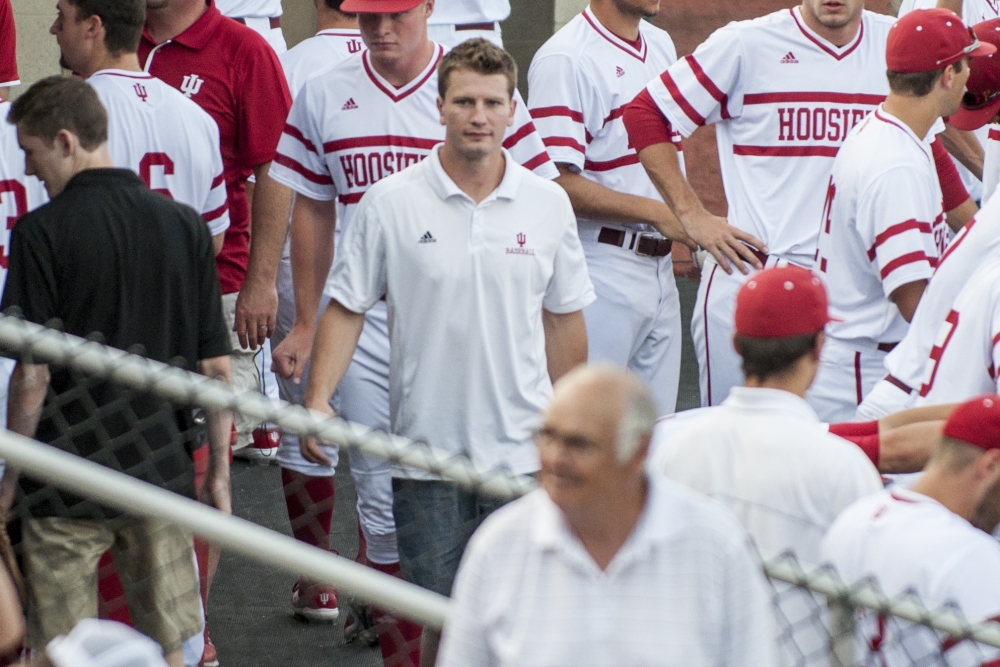
***
Jaime was a high school English teacher for 10 years and Tracy has spent his whole life either playing or coaching baseball.
When their son Casey was born, they combined their trades and named him after the famous baseball poem, “Casey at the Bat.”
The poem is set in the late 1800s at a ballpark. The home team, the Mudville Nine, is down 4-2 in the final inning.
The team’s best hitter, Casey, has a chance to win the game. He is at bat with runners on second and third with two outs for Mudville.
The Casey in the poem is highly regarded with the fans, who are ecstatic when he comes to bat. Surely, they think, their best hitter will come through and either tie the game up or win it outright.
But the final line of the poem reads, “But there is no joy in Mudville — mighty Casey has struck out.”
Just like the character he was named after, Casey Smith’s last at-bat playing competitive baseball was a three-pitch strikeout.
“What irony,” Casey Smith said with a smile and a chuckle. “I’m named after the guy who strikes out. When all this is thrown at you, you have to stay positive. So I just laughed, I wasn’t demoralized. I had fun on those three hacks that I missed.”
Casey Smith is done playing baseball. But nobody in his life thinks he is done being successful. Even if he doesn’t make it big in Los Angeles, Smith believes there is always something else on the horizon.
“That’s life. Everybody strikes out at some point,” Jaime said of the poem, and her son. “It’s what you do next that counts.”

